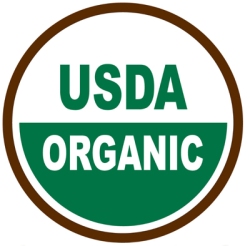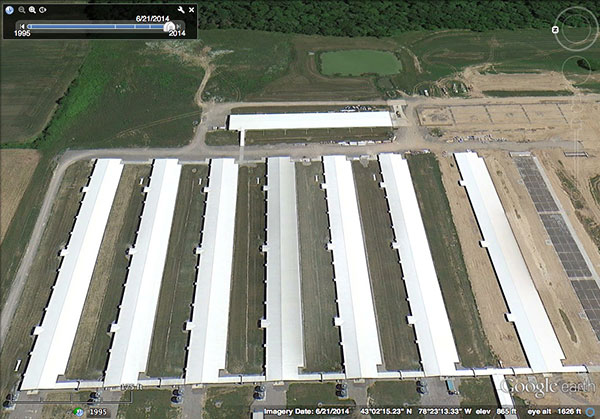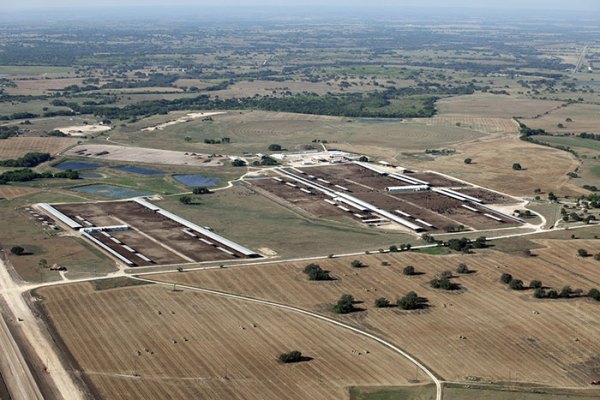I was reading this story on Food Safety News about food fraud:
Food Fraud a Bigger Problem Than Many Realize, Experts Say
Listen to this:
The most visceral audience reaction came from another case out of China: undercover video of fake rice being produced in China out of plastic resin and sweet potato.
“Three cups of this rice is equivalent to eating a plastic shopping bag,” Weinberg said.
Remember the big melamine-in-milk scandal from 2008? People were saying they wouldn’t buy or eat anything from China after that. But it’s not just China.

With synthetic pesticides allowed in organic crop production and factory-farmed milk and eggs allowed to be labeled organic, this label has been seriously compromised.
Let me ask you … If you were an unscrupulous food producer here in the US, what kind of false label would occur to you to put on your food that would boost your bottom line, that might be arduous to investigate? How about “organic”?
Investigation: “Factory Farms” Producing Massive Quantities of Organic Milk and Eggs
After years of inaction by the USDA, Cornucopia contracted for aerial photography in nine states, from West Texas to New York and Maryland, over the past eight months. What they found confirmed earlier site visits: a systemic pattern of corporate agribusiness interests operating industrial-scale confinement livestock facilities providing no legitimate grazing, or even access to the outdoors, as required by federal organic regulations.
Some aerial photos from Cornucopia’s investigation:

Green Meadow (Herbrucks) Poultry Ranch, Eggs; Saranac, Michigan (August 15, 2014 at 1:45 PM)
The scale of this operation can only be appreciated if you note the semi-trailers in the forefront of the photo. These two-story houses likely contain over 100,000 birds using aviary systems. The farm itself is licensed for over 1 million. Screen porches on the side of the buildings are visible.

Kreher’s Farm Fresh Eggs; Bason, New York
Kreher’s Organic Facility: June 21, 2014 — no birds out

Aurora Organic Dairy; Dublin, Texas
Overview of the two feedlots. It’s important to note that virtually all the surrounding fields, which could be used for pasture, have been recently cut and baled for hay. There is effectively no pasture available to these animals.

Aurora Organic Dairy; Dublin, Texas
Close-up of the largest feedlot.
I’m telling you, “organic” has become just a marketing gimmick.
____________
Related:
USDA Guts National Organic Law; Circumvents Public Process; Decision makes it easier to continue use of artificial ingredients and substances, undermining integrity of organic label, Joint statement of Consumers Union, Food and Water Watch, Beyond Pesticides and Center for Food Safety, 19 September 2013
Organic Food Is Grown With Manure From Factory Farms, Synthetic Pesticides, 8 July 2015

I’m not at all surprised by this, but am disheartened by the widespread occurrence of inhumane treatment of farm animals intended for consumption. I live in a hog-producing state and every so often there are protests from people living close to these horrors but, of course, nothing seems to be done to correct the unbearable pollution created by these places. Also, I’ve noticed “new” brands of organic dairy products lately and have had questions running through my mind as to whether or not they are authentic. Now there is even more doubt.
LikeLike
You live in a hog-producing state? You must have stories. There was someone who used to comment here who talked about the stench from fields near her in Maryland … after they sprayed manure from factory farms. I think that’s what it was. And that can be used on organic crops!
I have lost faith in “USDA Organic.” I used to think it was worth searching out. I don’t think I’ll be alone in thinking that. This Cornucopia article said that Consumers Union publicly downgraded the USDA organic label:
I foresee another certifier, someone private, maybe Oregon Tilth? or someone else, rushing in to fill the USDA void. I think people are smart, they can see that corporations are gaming the system.
I also foresee the term “organic” fall by the wayside. It didn’t exist 50 years ago and I don’t think it will be around in another 50 years. In its place? Maybe “sustainable.” Something that more clearly represents food that’s good for the environment, good for health.
“Organic” brings to mind no chemicals, no factory farming, and maybe no genetic engineering. As I’ve seen, none of that is true anymore. GMOs drift and have been found in organic crops, so has Roundup.
LikeLike
Where I live is not close to any of the hog operations, but yes there are plenty of stories from folks who do. It is atrocious how they are assured something will be done about the air pollution, ground water contamination but from what I can tell nothing has changed. Food fraud is so widespread I don’t know why it hadn’t occurred to me that organic food might not be authentic. I always looked for the certification and assumed it was okay. Although for some years now olive oil fraud has been rampant in oils from the Mediterranean, and other sought-after imported foods are mismarked or adulterated to fool the public. Think I’d best put up a deer fence and get back to gardening!
LikeLike
Deer are a big deterrent for me too. That and lack of time, energy, and decent soil.
LikeLike
This point about raising our own food, on an individual basis, has my ire up. (Not directed at you.) As a hobby, or a small business, it’s great. But people should not have to rely on gardening to acquire safe, sustainable, and affordable food. We are, in effect, telling corporations, government, and society that food fraud and contamination are ok. It also assumes everyone can raise their own food.
LikeLike
But how to raise a revolution against this corporate control? It’s endemic.
LikeLike
Cornucopia rated organic dairy products in 2006, grading producers from “5 cows” (the best for the animals) down to zero cows (the worst). I’m sure that none of them, even the worst, would fit in with your well-taken points on the “morality” of organics. http://www.cornucopia.org/dairysurvey/index.html
LikeLike
The Cornucopia survey only rated the way the animals are treated, however, not the quality or lack thereof of the dairy products from different farms.
LikeLike